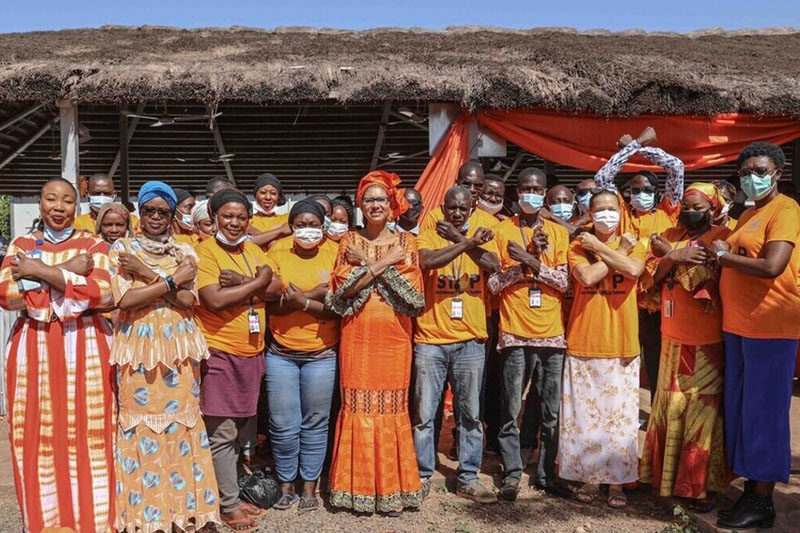Human rights activists in Maiduguri, Borno State, have joined rest of the world in kick-starting the 16 Days of Activism against Gender-Based Violence, an annual campaign that started on November 25, the International Day for the Elimination of Violence against Women, and ends on International Human Rights Day on December 10.
The 16-day campaign is led by civil society groups, women leaders in government, non-governmental organisations (NGOs) and women-aligned groups in the private sector. Globally, the campaign is supported by the United Nations through the Secretary General’s UNiTE by 2030 to End Violence against Women initiative. This year, the United Nations 16-day campaign is themed “UNITE! Activism to end violence against women and girls”.
Falmata Umar Lawan, director of the Borno State Ministry of Women Affairs and Social Development, told RNI that the 16-day campaign against violations of the fundamental rights of women and children was an opportunity to discuss pressing issues concerning human rights violations, especially the rights of women and children, with a view to finding lasting solutions to put a stop to gender-based violence (GBV), injustices, violations of children’s rights by their parents or foster parents, maltreatment of men by their wives or maltreatment of women by their husbands and violations of human rights in schools, market places and other public places.
It was also a time to investigate the general maltreatment of women and children, including general human rights violations, by either security forces or armed militia amid ongoing counterinsurgency operations in northeastern Nigeria, particularly in Borno State.
Lawan said there would be a number of summits held during the 16 days.
“We will promote young people and women empowerment. For instance, on the first day of the campaign many women displayed their handmade products. They had attended training in business empowerment and had programmes that encouraged them to either learn new skills or learn how to use their new knowledge to empower themselves. The training and skills programmes were run by the government and NGOs, the aim of which was to make women self-reliant and financially independent. It was most heartening to see people buying their goods and supporting their efforts.
“As this year’s theme is ‘UNiTE! Activism to end violence against women and girls’, I urge citizens of Borno State – and Nigeria as a whole – to join hands together to fight injustice, unfair treatment of all genders, gender-based violence, the maltreatment of women and children, as well as general violations of the fundamental and constitutional human rights of all people.”
Lawan said the campaign would help to create awareness among the public, especially women and children, about the violations of human rights and how every person should fight for their rights and the rights of others by following the due processes and ways.
“I call on my fellow women, young people and others to contact the Ministry of Women Affairs, civil society groups and NGOs if they believe their rights are being violated or maltreated and we will definitely take action on the matter. It is the responsibility of every person to unite in the fight against violations of human rights not only in Borno State, not only in Nigeria, but worldwide.”
The United Nations said more than one in three women experienced GBV in their lifetime; more than five women or girls were killed every hour by someone in their own family; less than 40% of women who experienced violence sought help of any kind.
“Violence against women and girls remains the most pervasive human rights violation around the world. Already heightened by the COVID-19 pandemic, its prevalence is now being further increased by the intersecting crises of climate change, global conflict and economic instability.
“Against this setting, a backlash against women’s rights is under way around the world. Anti-feminist movements are on the rise, attacks against women human rights defenders and activists are up and the legal status of women’s rights is increasingly imperilled in many countries. Regressive new laws are exacerbating impunity for perpetrators of domestic violence, governments are using force against femicide and gender-based violence protesters and women’s rights organisations are being increasingly marginalised.”
It said that despite these discouraging trends, there was more proof than ever that violence against women and girls was preventable. Evidence showed that the single most important driver of policy change was a strong and autonomous women’s movement – making feminist mobilisation in the face of the anti-rights backlash a literal matter of life and death.
“This 16 Days, we’re encouraging everyone to get involved: from amplifying the voices of survivors and activists to supporting women’s organisations and strengthening feminist movements, we can all act to empower survivors, reduce and prevent violence against women and girls and protect women’s rights.”
SHETTIMA LAWAN MONGUNO









